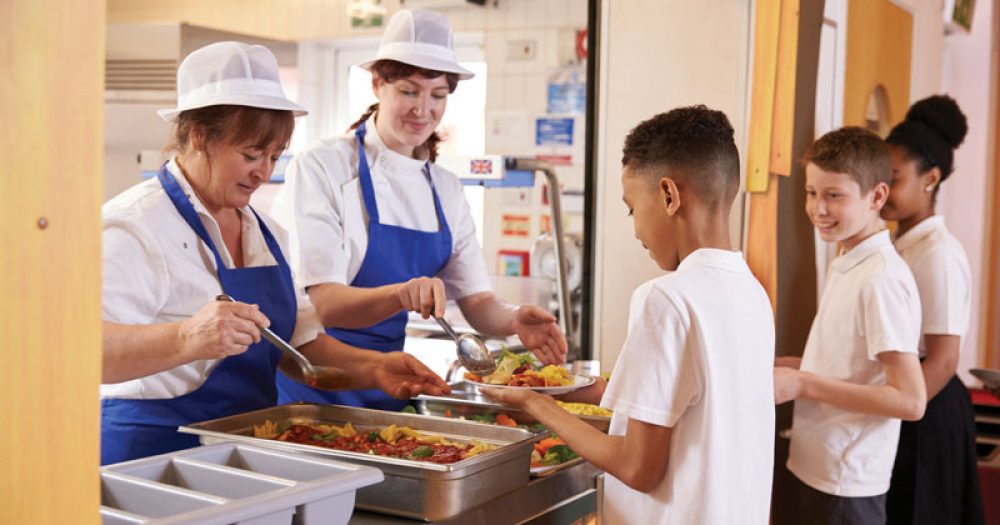More than a fifth of school staff are worried that pupils eligible for free school meals are not claiming them.
A poll of 900 National Education Union members by the Child Poverty Action Group found that 60 per cent of staff believe all eligible children in their school are getting the free meals they are entitled to, while 21 per cent think some are not.
A further 4 per cent believe the number missing out on their entitlement is “significant”. At the same time, 13 per cent of respondents said their school was forced to run a food bank for needy pupils.
While all reception, year 1 and year 2 pupils get free meals, pupils in year 3 and above are eligible if their parents claim certain benefits. But those who qualify are not auto-enrolled to receive the lunches – their parents or carers must sign them up. Last year, take-up of free school meals fell to the lowest level on record.
Today’s survey reveals that 56 per cent of teachers think parents don’t claim free meals for their children because they are too embarrassed, while 52 per cent think parents aren’t aware that their child might be eligible. 46 per cent said the process for claiming meals is too bureaucratic or complex.
Apart from depriving vulnerable children of a hot meal at lunchtime, the under-claiming of free school meals also deprives schools of additional funding under the pupil premium, which is issued based on the number of pupils who claim free meals.
The NEU and CPAG survey shows that much-needed support from schools for poorer pupils is under threat as a result of funding cuts.
The majority of respondents said their school was providing subsidies to help meet the costs of day and residential school trips for poorer pupils, while half said their school paid all or part of the cost of participation in sports clubs and other extra-curricular activities. 13 per cent of staff said their school runs a food bank.
But many staff who responded to the survey said poverty support is now being removed by their schools because of budget cuts.
“We heavily subsidised trips and clubs. However we are unable to continue doing this due to
our budget which is a real shame for our pupils,” said one respondent.
“Children who are from very low income families have the cost of these trips etc covered by pupil premium funding. Those whose families are hard pressed but not on a low enough income to qualify for pupil premium are more likely to miss out,” warned another.
“The school does its best to fund them too from general resources but our budget has been cut dramatically so this is unlikely to continue now.”
School staff are also personally providing support for poorer pupils. 53 per cent said they had paid for school equipment such as books and stationery, while 34 per cent said they provided food. Others supplied PE kits, toys and sanitary protection. 8 per cent help with travel costs.
“Schools cannot be expected to provide sticking plaster solutions to a problem of the Governments making,” said Kevin Courtney, joint general secretary of the NEU.
“Support services for families who are struggling are being vastly reduced or cut to the bone. We can and must do better as a society.”
Alison Garnham, chief executive of the Child Poverty Action Group, said nine children in every classroom of 30 now fall below the official poverty line, and called for free school meals to be available to all pupils, regardless of income.
“More than half the teachers who responded to this survey believe that many children who would benefit from a free school meal are missing out, because their parents don’t meet the criteria or because they are put off by the stigma associated with claiming. All agree the benefits of a free meal are obvious.”








Your thoughts